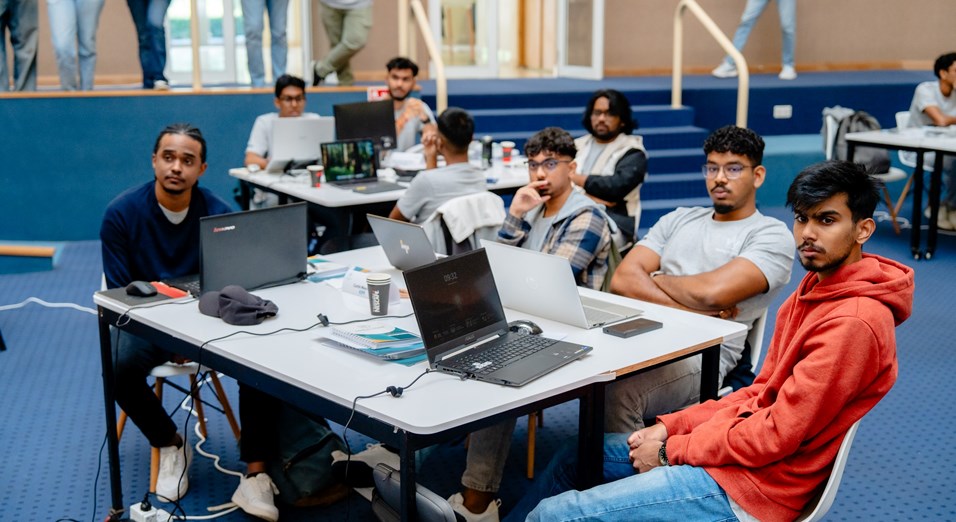A race against time to create "Empathy", the digital companion for student well-being

"Let’s put human creativity in the spotlight." These words from Sarita Hardin-Ramanan, Head of Faculty of Accounting, Finance, Law and IT at Curtin Mauritius, set the tone for the competition currently in full swing at Curtin Mauritius, on the Charles Telfair Education campus. The Hackathon Game of Code returns for its second edition, with a major challenge: to develop an application called Empathy, a digital companion designed to support university students' mental well-being.
This year’s theme – "Your Human Twist" – puts people at the heart of technology. It's a call to go beyond code, to infuse the proposed solutions with sensitivity, empathy, and emotional intelligence.
Around 70 students from five institutions – Curtin Mauritius, University of Mauritius, Middlesex University, University of Technology, and, for the first time this year, Polytechnics Mauritius – are competing in this technological and human challenge.
Over the course of 12 hours, these second- and third-year computer science students must propose an innovative solution to help their peers manage stress, anxiety, or even isolation. The concept: a platform offering real-time emotional support through an empathetic AI, relaxation tools (breathing exercises, journaling, music therapy), and guidance toward professional services.
What sets this hackathon apart is the invitation to inject a deeply personal touch. "Artificial intelligence is there to support them. But what we’re really expecting from them is creativity, innovation – what we call in our slogan: the human twist," explains Sarita Hardin-Ramanan.
The challenge kicked off early Wednesday morning. Participants will be coding until 10 p.m. They’ll then have Thursday to finalize their presentation and prepare to pitch their project on Friday, June 20, in front of a panel of 17 experts from 13 tech companies.
These industry professionals will be assessing not only the technical quality of the proposed solutions, but also their human relevance. "Today, there are no limits in the industry. We must move with the times. What we want is to train a generation capable of seeing artificial intelligence as a lever to better serve humanity," says Sarita Hardin-Ramanan.
The results will be announced Friday afternoon, around 3 p.m. Three teams will make it to the podium. But beyond the prizes, this is above all a unique opportunity to learn, to push boundaries, and to let new voices be heard in the conversation between technology and mental health.
